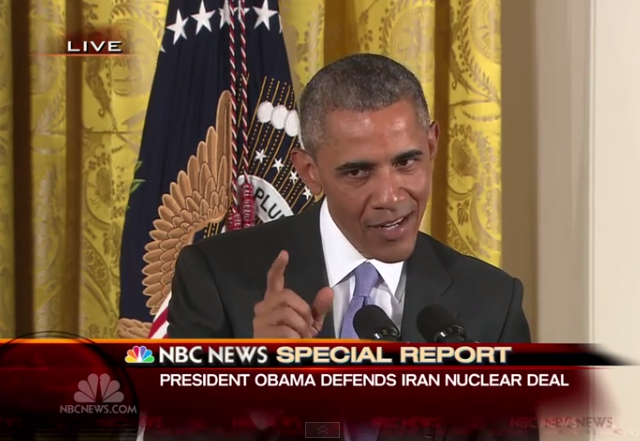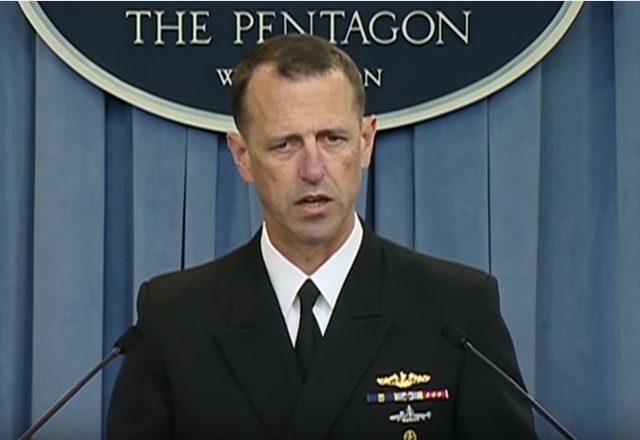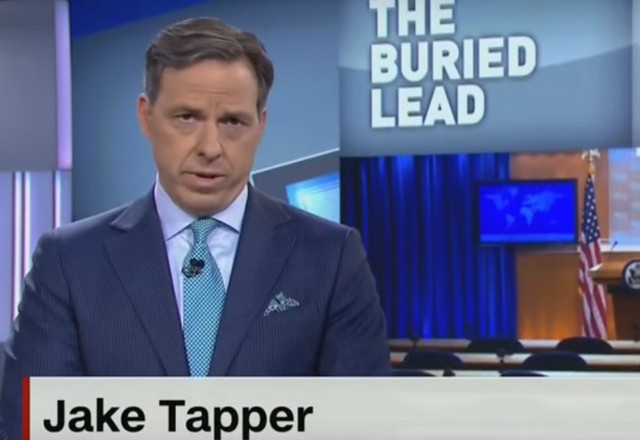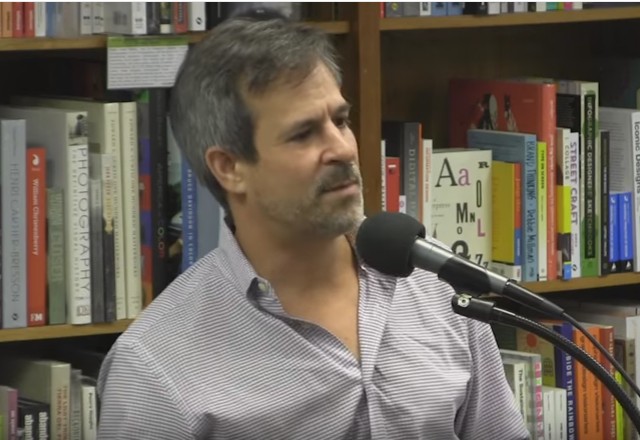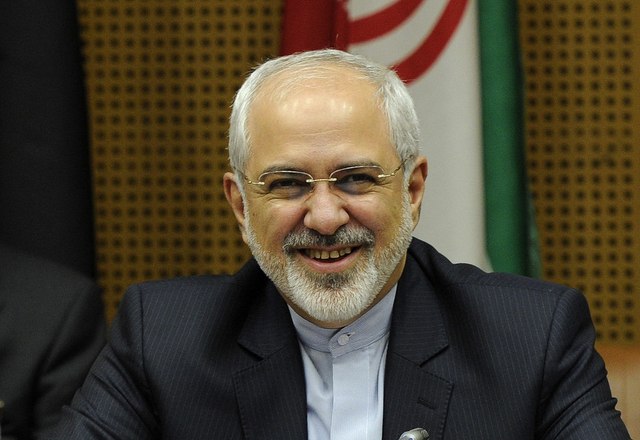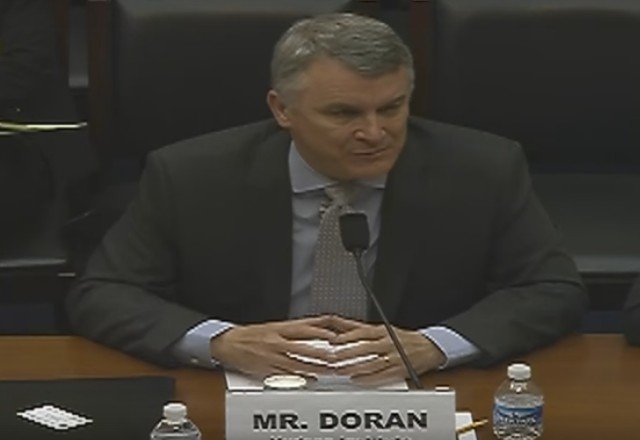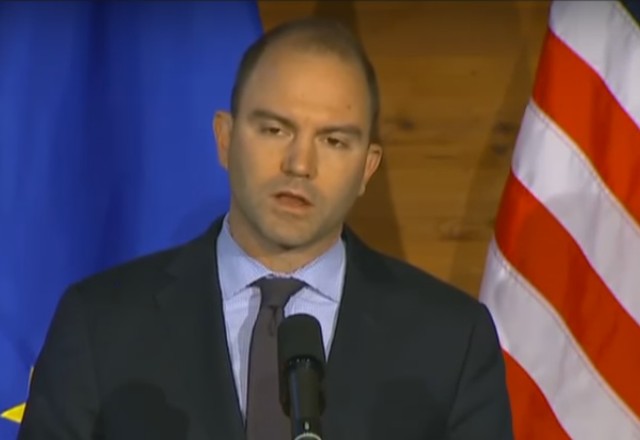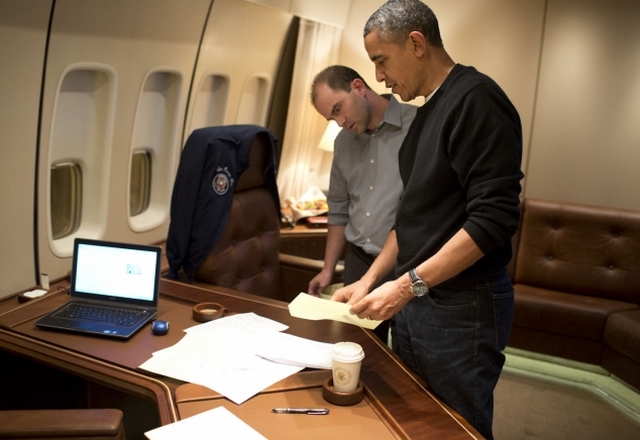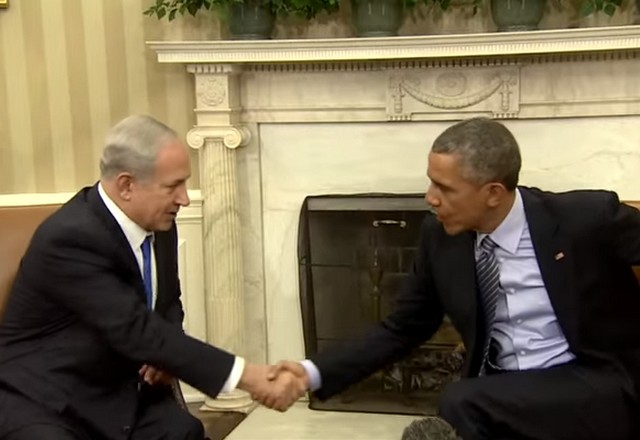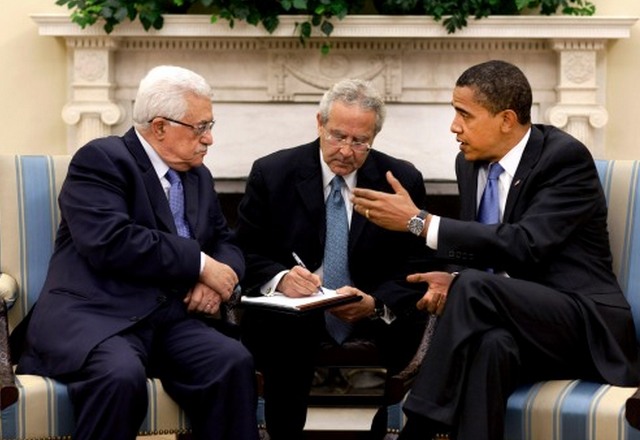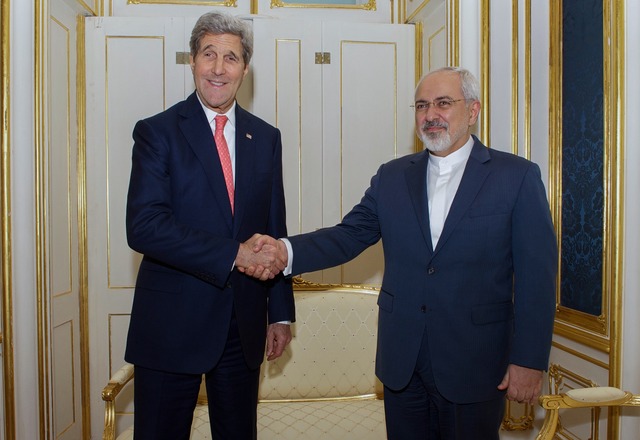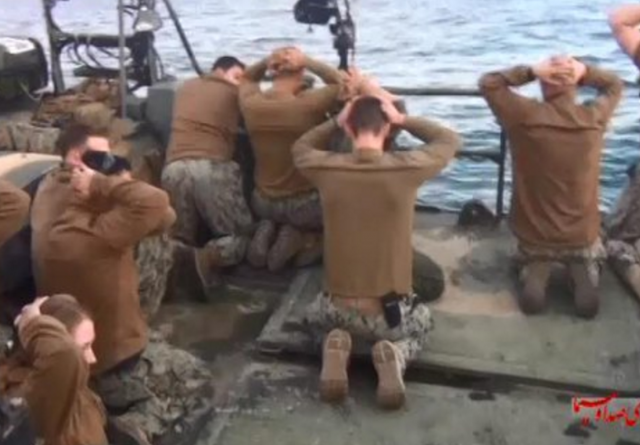Author: David Gerstman
David Gerstman
David Gerstman blogged as Soccer Dad from 2003 to 2010. Formerly a computer programmer, he is now a blogger for The Israel Project's The Tower blog.
More proof Iran Nuke Deal not about stopping a nuclear weapon
The document obtained by the AP fills in the gap. It says that as of January 2027 — 11 years after the deal was implemented — Iran will start replacing its mainstay centrifuges with thousands of advanced machines. Centrifuges churn out uranium to levels that can range from use as reactor fuel and for medical and research purposes to much higher levels for the core of a nuclear warhead. From year 11 to 13, says the document, Iran will install centrifuges up to five times as efficient as the 5,060 machines it is now restricted to using.
U.S. Navy: Seizure of American Soldiers by Iran Violated International Law
Richardson said a number of serious mistakes contributed to the sailors’ capture, but he reiterated they broke no international laws and “had every right to be where they were on that day” because the laws of the sea allow for what’s called innocent passage. “The investigation concluded that Iran violated international law by impeding the boats’ innocent passage transit. They violated sovereign immunity by boarding, searching and seizing the boats and by photographing and videotaping the crew,” Richardson said.
Jake Tapper Demands Accountability from State Dept. Will MSM Follow?
Some Jew-baiting is more equal than others to the media
Singling Out Jews in Yellow
Shortly before the Senate vote on the nuclear deal with Iran was supposed to take place (but was filibustered by Democratic supporters of the deal), The New York Times *helpfully* provided a list letting everyone know which Jewish lawmakers were against the deal, with the names highlighted in yellow.
The New York Times, after the expected (and deserved) outrage, removed the "Religion" column from the list but acknowledged no wrongdoing, "[under] Times standards, the religion or ethnicity of someone in the news can be noted if that fact is relevant and the relevance is clear to readers." Nonetheless due to readers' outrage, it adjusted the list.
How’s That Iran Nuclear Deal Working Out?
Probably the biggest source of friction is a U.S. law that bars Iran from using the U.S. financial system and the American dollar, even indirectly. The law, enacted in 2012, was aimed at punishing Iran for a variety of alleged sins: the country’s ballistic missile program, human rights abuses and state-sponsored terrorism. Because these issues haven’t been resolved, there is virtually no chance Congress would repeal the law in the foreseeable future, experts say. As long as that statute remains in place, foreign banks holding Iran’s funds in dollars will be wary of doing business with the country.
The Five Deceptions of Obama-Rhodes Echo Chamber
The Rhodes to Perdition
Grand Deception: How Obama and Ben Rhodes Lied Us Into the Iran nuke deal
Administration Appeases Iran on Visas, Restrictions on US Banking System
After 7 Years of Failure, Obama Plans One More Push for Mideast Peace
The internal discussions are aimed at offering a blueprint for future Israeli-Palestinian talks in a bid to advance a critical foreign-policy initiative that has made little progress during Mr. Obama's two terms in the White House, the officials said. The strongest element on the list of options under consideration would be U.S. support for a Security Council resolution calling on both sides to compromise on key issues, something Israel had opposed and Washington has repeatedly vetoed in the past. Other initiatives could include a presidential speech and a joint statement from the Middle East Quartet, an international group comprising the U.S., the United Nations, the European Union and Russia.According to the Journal, the President Barack Obama hasn't made up his mind but "is considering a range of options." In any case no decision is expected until later this year.
Why Abbas Doesn’t Want Peace or Statehood
- After spending years agitating for the "right of return" there is no way he would abandon it and lose whatever little credibility he still has with the Palestinians in order to make peace.
- He might complain about the human rights abuses of Israel, but the Palestinian security services will be worse.
- Right now Abbas doesn't have to fight Hamas directly, Israel is doing most of the work. As an added bonus Israel's presence in the West Bank allows him to complain about occupation. If he gets a state by compromise he will lose the Israeli protection and he will look like he gave in to Israel.
The Foreign Policy Conversation Democrats Would Rather Not Have
We can debate how much blame Obama deserves for Syria’s civil war, but almost no one outside his paid staff disputes that he’s only made things worse. The conflict there has set off the worst humanitarian crisis in Europe since the end of World War II — that’s John Kerry’s own assessment — which may yet tear the European Union asunder. The instability closer to the fighting is even more dangerous. Russia and Turkey may soon go to war with one another, as Russia mercilessly and indiscriminately massacres anyone standing in the way of its pet, Syrian president Bashar al-Assad. The Jordanian monarchy may crumble, in part for a lack of assistance from the United States.
Israel’s Legitimacy is not dependent on a Palestinian State, or The NY Times
The Costs of Outsourcing America’s Foreign Policy to Iran
Escalating Iranian provocations leave John Kerry practically giddy
Now, the Secretary then got on the phone with Foreign Minister Zarif for the first time – I think the first of at least five phone calls they had during the course of that afternoon and evening – at about 1 o’clock in the afternoon. The main message that he – there were a few messages he wanted to convey to the foreign minister. One, to provide him with some information about our understanding of what had happened, which was not perfect but was sort of developing in real time. And we had gathered some information including that the sailors were in transit at the time of the incident, that they were in transit between Kuwait and Bahrain, that they may have had some sort of mechanical problem – although at that point we weren’t sure – that we had lost communications with them, and that we had indications that they were now located on Farsi Island in the Gulf. The Secretary made clear that our most important priority – and that this was critical – was that they be released, obviously, safely and unharmed and as quickly as possible, and that if we were able to do this – and this is something that he said to Zarif on a few occasions – if we are able to do this in the right way, we can make this into what will be a good story for both of us.Think about that last line, "a good story for both of us."
Vox Don’t Know Much ‘Bout Middle East History
I'm not certain I will create parts 2 and 3, because I don't know who will want to spend maybe 45 minutes listening to a critique of a ten minute video. Literally every ten seconds I nI ceeded to stop to respond to another distortion or lie.I certainly had that feeling reviewing the video:
Ayatollah Khamenei Calls Seizure of American Sailors “God’s Deed”
Donations tax deductible
to the full extent allowed by law.
CONTRIBUTORS
- William A. Jacobson
Founder
- Kemberlee Kaye
Sr. Contrib Editor
- Mary Chastain
Contrib Editor
- Fuzzy Slippers
Weekend Editor
- Mike LaChance
Higher Ed
- Leslie Eastman
Author
- Vijeta Uniyal
Author
- Stacey Matthews
Author
- Jane Coleman
Author
- James Nault
Author
- Mandy Nagy
Editor Emerita
- Learn more about the Contributors

